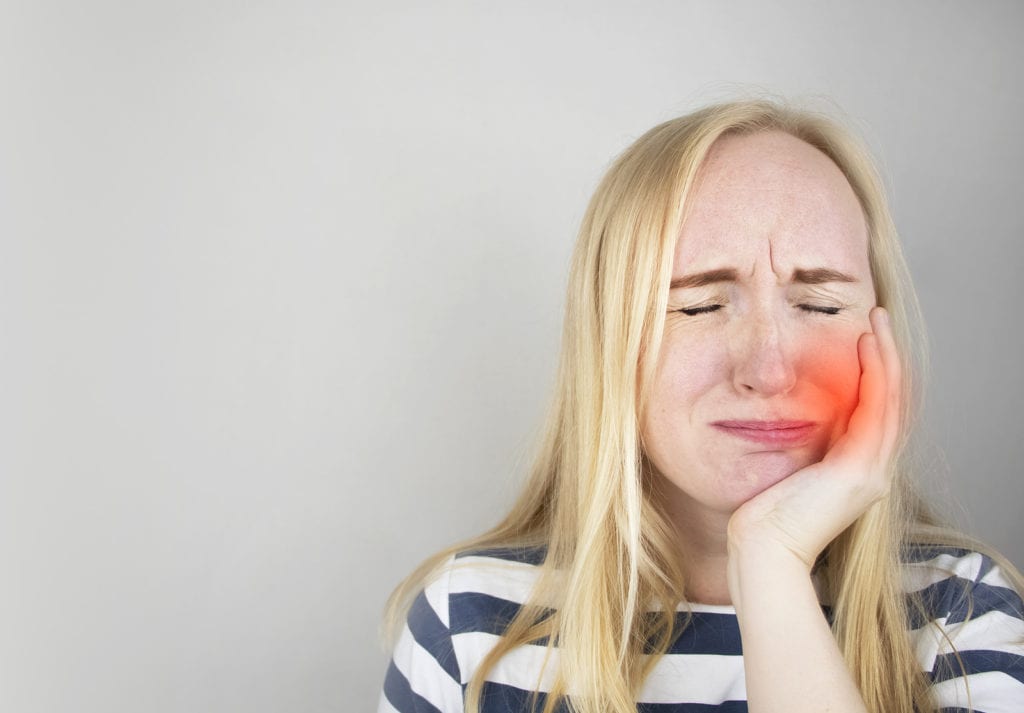Tooth sensitivity after a filling is not uncommon, especially if you have undergone a deep filling. However, after leaving the clinic, any minor pain or numbness should subside within two hours. If not, it may be a sign that the filling has not taken well to your tooth and you may require a return visit.
Learn more about fillings, what could be causing your discomfort, and how it can be treated, by reading on here. Alternatively, you can contact us right away to book an appointment with our professional dentistry team for relief as soon as possible.

Why We Have Fillings
Fillings are essential, minor treatments that remove and replace the damaged or decayed part of your tooth with durable material. This material is moulded into your tooth to protect it from the risk of infection. Most fillings are metal-based, porcelain, resin, or a combination.
Having a Filling: The Process
Having a filling is arguably the most common procedure dentists perform. It is a routine procedure that is able to alleviate any pain associated with cavities and damaged teeth and restore the tooth so you are able to eat and drink normally.
The process of having a filling can be broken down into three steps:
- Numbing the area around the tooth – a local anaesthetic is applied to the area where the filling will be placed.
- Removing the decay – your dentist will then remove the areas of decay from the affected tooth, they do this using a small drill that delicately chips away at the decay. This only takes a few minutes and you will not feel any discomfort.
- Placing the filling into the affected tooth – once the decay has been removed, your filling is placed. Your filling may be porcelain, resin, metal, PFM (porcelain fused with metal) or a combination depending on the advice from your dentist.
Your mouth will feel numb for a few hours after the procedure, and it’s advised you don’t eat anything during this time.
Why do Fillings Cause Tooth Sensitivity?
- Irritated nerves
An irritated nerve is not uncommon when a deep filling is placed. Irritated nerves can result in inflammation and can cause pain. Your enamel and cementum usually protect the nerve from exposure, but deep fillings can reach the nerve endings and cause uncomfortable, sharp sensations. However, irritated nerves from deep fillings can heal over time.
- Incorrect bite alignment
One of the most important aspects of correctly fitting and placing a filling is to ensure it aligns with the patient’s bite alignment. A filling that is not properly fitted may impact the patient’s bite, which can cause discomfort for a few reasons.
If the filling is too tall, it can cause extra pressure as the person bites down, and this pressure can cause pain and discomfort. It’s not uncommon to experience some sensitivity when eating after your treatment, but your bite should correct itself over the next few weeks.
If your filling doesn’t rectify itself, you will need to revisit your dentist so they can file it down.
- Pulpitis
Pulpitis occurs when the pulp within the tooth becomes inflamed, which in turn, leads to pain and discomfort. Although it’s rare for pulpitis to occur in minor fillings, it can occur when:
- Your tooth has suffered an accident, injury or trauma, resulting in a cracked or broken tooth
- Your cavity was deep and had affected the inner pulp
- The affected tooth has previously undergone multiple fillings
Can pulpitis be treated?
If pulpitis has reached and damaged the nerve so badly it cannot be saved, you will likely need a root canal procedure to save the affected tooth. However, pulpitis may not lead to this if the pulp remains healthy and only minor inflammation has occurred. Your dentist should also be able to treat pulpitis via a filling procedure or a root canal.
Other Causes of Tooth Sensitivity, Pain and Discomfort After a Filling
If you are suffering from pain after your filling and none of the reasons above explain it, there may be a few other reasons why:
- Your tooth is sensitive after the filling – this is completely normal straight after the treatment has finished. It’s important to avoid hot and cold foods for at least a few hours while your filling sets. Pain should subside within a week or so and sensitivity should stop after two to four weeks. If it continues for longer, contact your dentist.
- A broken or loose filling – if your filling has been poorly fitted or hasn’t taken well to your original tooth, it can cause pain and discomfort. This can be rectified by revisiting your dentist and having the filling replaced.
- An allergic reaction to your filling – some patients have allergies to metal which can affect how their tooth or teeth react to the new filling. It is essential that you inform your dentist of whether you have a metal allergy so they can suggest another material for your filling (such as porcelain or resin).
Remedies for Sore Teeth After a Filling
Having a cavity filled is typically a fast and painless process, but it’s not uncommon to feel some discomfort post-treatment. We have mentioned a few key tips to help with pain and sensitivity:
- Taking pain medication as prescribed or suggested by your dentist
- Gently brushing and flossing with an electric toothbrush (soft-bristled)
- Using a sensitive toothpaste
- Chewing and eating on the opposite side of your mouth (away from the filling)
- Avoiding hot and cold food and drink
- Avoiding acidic, sugary food and drink
How to Treat a Sensitive Tooth
Most dentists would recommend sensitive toothpaste for patients who have just undergone a filling. Potassium nitrate is the chemical compound that helps stop the sensations of the surface of the tooth from reaching the nerves inside.
You must continue to use the toothpaste in order for the effects to be noticed. Whitening toothpaste should be avoided as they are known to increase tooth sensitivity.
Aside from sensitive toothpaste, patients suffering from a sensitive tooth after a filling may also consider trying:
- Over-the-counter pain medication (or medication suggested by your dentist)
- Using a soft-bristled toothbrush
- Brushing and flossing twice a day, gently around the newly filled tooth
- Avoid drinks that cause you more sensitivity, these may be hot, cold and/or surgery drinks
If your tooth sensitivity after your filling does not improve, it’s advised you contact your dentist as there may be problems with placement or sensitivity unrelated to the filling.
Book an Appointment and Give Relief to Sensitive Teeth
If you are experiencing tooth sensitivity after a filling, you can arrange a checkup with our team at Hove Dental Clinic today. We will be able to assess and provide a solution to your sensitive tooth, whether that involves refitting the filling or applying a new one.
Contact our team today for more information or to make a booking, and work with a professional to find the right treatment for your filling and your sensitive teeth.
FAQs
My tooth is still sensitive after a filling, is it bad?
One of the most common ways to tell if a filling is bad is if you feel a short, sharp pain when biting or chewing on that single tooth. Other symptoms may include your tooth looking grey in comparison to other teeth, this is a sign that bacteria may have entered the area between the filling and your enamel. In this case, the filling would likely be replaced.
What happens if a filling is too deep?
If you have undergone a deep filling and are experiencing pain, it may be that the filling has reached a nerve and has irritated it. The nerve should heal itself, but if pain or sensitivity does not subside within two to four weeks, dental intervention may be required.
What happens if a filling is too low?
Fillings that are too low may not have been properly fitted or moulded into the gap in your tooth. This puts the filling at risk of becoming loose, breaking or falling out. If you discover your filling is loose, it’s important to revisit your dentist as bacteria will find its way into your tooth.
Does having a filling hurt?
All modern filling procedures use a local anaesthetic to ensure you feel no pain during the procedure. Fillings are designed to alleviate any pain associated with your cavity, so once your filling has been placed, any previous pain from your cavity should be gone.
What foods am I able to eat after a filling?
Your tooth and mouth will be sensitive after your filling, so it’s strongly advised you avoid hot and hard foods at all costs for at least two hours. Hard foods have the potential to dislodge your new filling and cause pain and discomfort, and the same goes for hot food and drink (especially if the filling is gold, silver or metal-based). However, you will be able to eat after a few hours or when the numbing sensation has passed.
How long until my filling is okay?
You will be able to eat and drink normally after approximately two to four weeks, with the sensitivity getting better each day. However, this varies from patient to patient and depends on the severity and size of the filling.
You can take minor pain relief medication on the advice of your dentist if you have a deep filling and you feel some pain post-treatment.




















